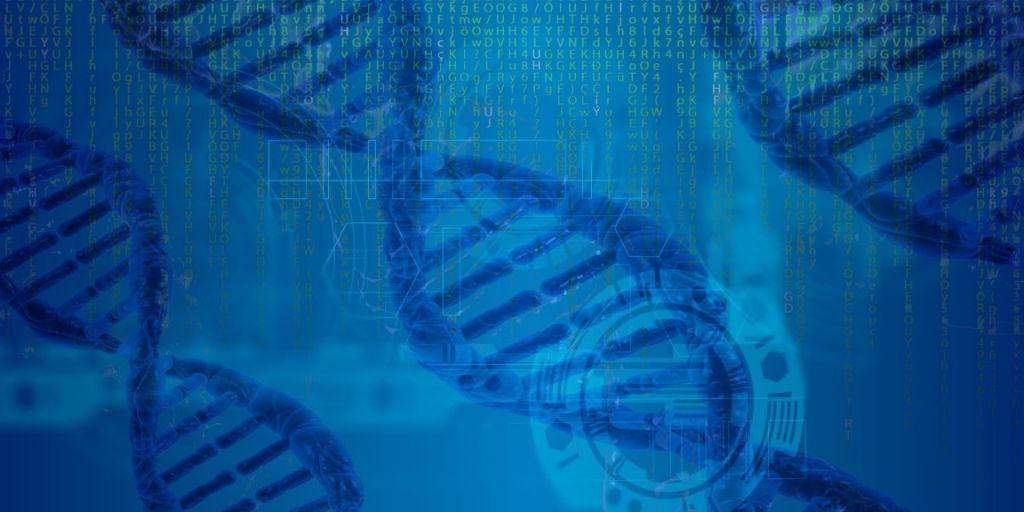
According to Statista, the global big data analytics market had a revenue of 14.85 billion US dollars in 2019, with an estimated increase to around 68 billion by 2025. It is clear data is becoming more valuable than gold in the eyes of many companies. However, much of this data is procured and sold without the consent of the unknowing contributor. Jasmine Smith, CEO of Rejuve, discusses how NFTs can help us keep track of data used in the healthcare sector.
Non-fungible tokens (NFTs) are cryptographic assets on a blockchain that have unique codes and metadata to act as a unique identification. Unlike the more well-known cryptocurrencies, which are fungible tokens, NFTs cannot be traded or exchanged for something of equal value. NFTs provide a unique cryptographic token that cannot be replicated, providing a perfect tool to store biodata.
The term biodata encompasses all details of a person’s life, education, career and biographical information. NFTs can be used to represent that data, ensuring it can be tracked and secured. This application would allow the owner of the biodata to be in control of their information and monitor its use in research.
The value of medical data
With many people unconcerned with how their data is being used, evident from the endless amounts of privacy policies online being accepted without reading them, it is no wonder that companies can use this data as they see fit. For example, the British consulting firm Cambridge Analytica was allowed by Facebook to use the personal data of over 80 million users without their consent so they could target American voters in the 2016 presidential election.
However, this is not just an issue with companies such as Amazon and Facebook, data misuse has occurred in privacy-critical sectors such as healthcare. Big pharma is the more serious culprit when it comes to data privacy, with companies profiting off patients’ data like in the case of Henrietta Lacks, whose contributions to medicine have all occurred without her consent.
In 1951, Lacks was diagnosed with an aggressive form of cervical cancer that took her life a few months later. Lacks’ cells were harvested without permission, cultivated and used for research on vaccines, IVF and more. This unwilling contribution went on to become a multibillion-dollar industry that has more than 17,000 patents involving her cells.
However, Lacks is not the only case of privacy breaches in the healthcare industry. Adam Tanner, a fellow at Harvard’s Institute for quantitative social science and author
of a book on how medical information is used, Our Bodies, Our Data, writes “you close the door and you think, I’m telling my doctor my most intimate medical secrets, and only my doctor knows about it. But it’s sold commercially.” This data is being used in a multibillion-dollar business without data contributors seeing a penny.
The solution from NFTs
NFTs provide a possible solution to these consensual breaches with their capacity to trace, authenticate and certify the data they represent. This would allow users to have forever ownership of their biodata and be fairly compensated when commercial products and solutions are developed thanks to their data. An example of this application is Rejuve, a spin-off company of SingularityNET. Rejuve is a longevity research project, aimed at extending human life using biodata voluntarily given through a dedicated app. Contributors’ data will be represented and tracked using non-fungible tokens (NFTs).
The use of NFTs allows Rejuve to track each data contribution so that data donors can be rewarded accordingly with fungible tokens created specifically for the platform, known as RJV tokens. These tokens are redeemable for supplement discounts, medical tests, longevity therapies and more. This differs greatly from how biodata is traditionally handled in healthcare, as contributors will know exactly why and how their data is used while contributing to decentralised collaborative research.
The time of big pharma using personal data for profit without compensating contributors could soon end with the emergence of technology like NFTs. NFTs can provide a useful solution to data usage in the healthcare industry with their traceability,
uniqueness and unchangeability. This revolutionary method of data tracking will help create a more democratic healthcare industry and promote a more decentralised and transparent future.











